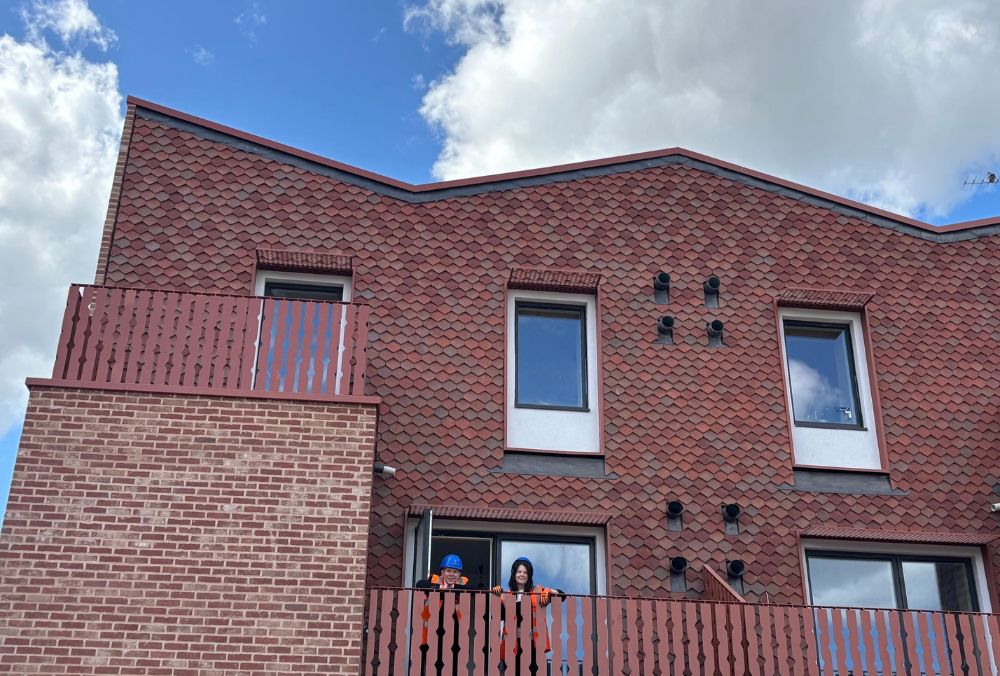Bank of England unlikely to cut interest rates before the end of the year
Economists say The Bank of England is unlikely to cut interest rates for the rest of the year, shattering hopes for many of cheaper mortgage rates.
- News
- 3 min read

Homeowners hoping for a drop in interest rates before the end of the year may be disappointed, after economists warned that the Bank of England is unlikely to make further cuts in 2025.
It comes after new figures from the Office for National Statistics (ONS) revealed that inflation climbed faster than expected in July, casting doubt on whether the Bank can ease borrowing costs any time soon.
Prices rose by 3.8% in the 12 months to July, up from 3.6% the previous month, driven largely by more expensive transport and a renewed rise in food prices. Economists had predicted a slightly smaller increase to 3.7%.
UK inflation rises more than expected in July
Transport costs were the biggest contributor to the inflation rise, with air fares playing a major role. Meanwhile, food price inflation hit 4.9%, the highest level seen since early 2024.
Rising costs have caused investors to scale back expectations of a rate cut this year; markets are now pricing in less than a 50% chance of a reduction before 2026.
Sanjay Raja, chief UK economist at Deutsche Bank, said: “Cost of living pressures remain, with food prices on the up and pump prices still rising. Inflation expectations are proving difficult to bring down.”
The Bank of England has a target to reduce inflation to 2%, but analysts say that could remain out of reach for some time. The last time inflation dipped below target was more than four years ago.
Will inflation stay high in 2026?
Some experts believe inflation could hover around 3.7% for the rest of the year, raising concerns for mortgage holders already facing higher repayments.
Elliott Jordan Doak, economist at Capital Economics, warned: “We expect headline inflation to stay above 3% until at least April 2026. That means the Bank of England will likely hold rates steady for the rest of this year.”
With wage growth, energy prices and global food costs all putting further pressure on inflation, analysts argue there is little room for monetary loosening.
Andrew Wishart of Berenberg added: “Rising services inflation, now at 5%, means that even if other prices flatlined, headline inflation could stay at 2.5%.”
What do higher interest rates mean for my mortgage?
For many homeowners, particularly those on variable rate mortgages or coming to the end of a fixed rate deal, the latest inflation figures may be unwelcome news. If interest rates stay high, borrowing costs are likely to remain elevated well into 2026.
For those looking to buy a home, this could mean mortgage affordability checks remain tougher for longer, with lenders stress testing applicants against higher monthly repayments. Buyers may find they are approved for smaller loans, which can limit the types of properties available within budget.
On the selling side, the picture is also more complicated. While demand has not disappeared, higher borrowing costs can make buyers more cautious, potentially leading to slower sales or offers coming in below asking price. Sellers who are realistic about pricing and flexible in negotiations are more likely to achieve a successful move in this environment.
The housing market could also face further pressure, as hopes of a rate cut fade. Housebuilding stocks slipped after the inflation release, reflecting investor concerns about reduced demand and tighter affordability.
Rachel Reeves says support is still needed
Chancellor Rachel Reeves acknowledged that households are still feeling the squeeze. She said: “We’ve taken steps to stabilise the economy, but there’s more to do to ease the cost of living for working families.”
While inflation is far lower than its double digit peak in 2022, today’s announcement makes clear that the road to price stability is proving longer, and bumpier, than many had hoped.
For now, it looks like interest rates will remain on hold; homeowners may need to brace for a prolonged period of higher mortgage costs. Buyers and sellers alike will need to factor this into their plans, making careful budgeting and realistic expectations more important than ever.
Find the best...
Planning to buy or sell? Here’s what higher rates mean for you
If you’re buying, don’t panic.
A higher interest rate doesn’t mean you can’t move, but it does mean you’ll want to budget carefully and perhaps be a little more flexible on location or property type. Speaking to a mortgage broker can be especially useful now, as they’ll know which lenders are offering the most competitive deals.
If you’re selling, buyers may take longer to commit, and some will want to negotiate harder.
The best way to stand out is by presenting your home well, setting a realistic price, and being prepared to work with your buyer to keep the sale moving. Patience and flexibility are your best friends in today’s market.
Related topics
Related topics
Most read articles
As featured in














